
Cedric Babu: Why I am Contesting for Kampala Central MP Seat
The son to seasoned aviator, Capt Francis Babu has declared his intention to oust Muhammed Nsereko as Kampala Central MP in 2021 general polls.
Cedric Babu Ndilima who currently works with Uganda Broadcasting Corporation as Head of Content has revealed why he wants to contest for highly contested Kampala Central MP Seat. Cedric Babu is also the host of the Cedric Live Show on UBC. He is also the Chairman of Uganda Tennis Association and Chairman of the marketing commission of the Uganda Olympic Committee.
Below is his statement on why he wants to contest for Kampala Central MP seat:
With the 2021 general elections looming in Uganda, no other seat is set to be as hotly contested as that of Kampala Central, with a number of candidates officially declaring their interest. Kampala is the capital and largest city of Uganda. With the city being home to an estimated 1,680,800 people, 31% of Uganda’s urban population, any candidate is set to face an uphill task to campaign in one of the country’s most ethnically and socially diverse regions. None more so than myself, Cedric Babu Ndilima.
The decision to vie for this seat is one that I have reflected and contemplated on for years now. Why should I consider myself to be a contender? Well, the answer to me is quite simple. Kampala is one of the fastest growing African cities, with annual growth rates of 5.6%. I have witnessed first-hand the improved urban designs, the increase in waste management, the investments in infrastructure, as well as the support for economic development such as the 4.5 million acres of land procured for markets. This is a step in the right direction, although, more needs to be done. The notion of urbanization needs to be coupled with development, especially in regards to policy.
It is my belief that the Government needs to accelerate its efforts to harness the potential benefits for urbanization to ensure sustainable development. The promotion of growth through urbanization is largely dependent on how conducive the existing infrastructure and institutional settings are. It is no secret that Kampala has grown rapidly, albeit with a lack of sufficient policy coordination.
As a result, the urbanization we are witnessing has not necessarily resulted in increased productivity, with a large majority of jobs created revolving around low productivity activities; a large problem for our burgeoning youth population.
My intention is to make a call for increased investments in skills development throughout the parishes and villages of Kampala Central. We need to equip Ugandans with the right set of skills required by companies to compete in domestic, regional and international markets, or by individuals to successfully make a living through self-employment. With employment comes the opportunity for wealth creation.
Governments should seek out ways of enabling forms of urbanization that contribute to growth and poverty reduction. We need to move away from making decisions based on politics and sentiment to those made based on science and research. Development progress cannot be made without good data. Another key focal area for me is women.
I recently read a report that titled the ‘Global Gender Gap’ by the World Economic Forum. Within that report, it stated that Uganda is ranked 45 out of 144 countries on the basis of its four key indicators: Economic Participation and Opportunity, Educational Attainment, Health and Survival, and Political Empowerment. Under the country score card section of this report, it revealed that Uganda ranked number 1 in primary education enrollment and yet only 127 in secondary education. This means that for the majority of girls in Uganda, and Kampala, their schooling is halted before or soon after becoming a teenager. Throughout the course of history, the pivotal role of women in society has ensured the stability, progress and long-term development of nations. They are our caretakers, our educators, and backbone in the workforce. We need to continue to provide quality education and opportunities for them, in order to ensure the advancement of our very own society. It is also important to note unpaid care work undertaken largely by women that is crucial to the economy.
According to the World Bank time use surveys undertaken in 2007 and 2013 showed that women spent two-thirds of their time doing unpaid work, and only one-third on paid work. We must try to change this. Let me reiterate by saying women are the fabric of our society and will be an integral part of my campaign. However, what is also crucial for me is the importance of sports and entertainment and its potential to increase development. It is no secret that my background is in both sectors, having had the opportunity to engage at multiple levels across the world.
I am currently the Chairman of Uganda Tennis Association and Chairman of the marketing commission of the Uganda Olympic Committee. My team and I at the Uganda Tennis Association have returned Uganda back to full membership of the International Tennis Federation, launched a grassroots and wheelchair tennis program and hosted seven professional tennis events in two years amongst other initiatives. This interest in Sport is what I share with many of Uganda’s youth. Time and time again, we have read the headlines highlighting Uganda as having one of the highest rates of unemployment on the African continent.
This is coupled with one of the largest populations of people under the age of 30. This combination has created a contentious climate of frustration, especially around the lack of solutions currently being offered. This is where I’d like to interject. The global sports industry is currently worth $1.3trillion a year, and the entertainment industry contributes 140billion UGX to our GDP. How are we creating and facilitating ecosystems that will provide our youth the opportunity to tap into these areas? To what extent can sport promote the social inclusion of the youth? The platform of sports has far-reaching benefits that include; improved personal health, job creation and income-generation to the promotion of cultural values and national identity. These potential benefits have yet to be fully realized across Africa.
Stronger partnerships need to be created between government, sports associations and the private sector to promote sports infrastructure. Surely it is no coincidence that Africa’s emerging economic powers are able to perform very well on international sporting stages. On the whole, the integration of sports into the national development agenda will be essential and the first step to developing the sports industry. This in turn will enable it to serve as a catalyst for the development of core skills for productive youth development including employability, and performance to improve the living standards of the Ugandan people.
The Entertainment and Arts industry must be explored with deliberate attempts to maximize its potential. Legislation around copyrighting and creation of an ecosystem where creatives (musicians, filmmakers, artists, models etc) can generate income and livelihoods. In summary my campaign will be centered around being the voice of the voiceless. We need to table real issues that affect our people and create change. Where I can't act directly I will leverage. Party Cohesion is paramount and a clean campaign is what I aspire to. Walk with me and let’s make Kampala a better more productive city. After all its our city.
Links
- 1567 views

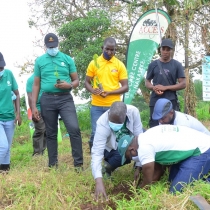




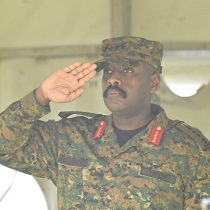

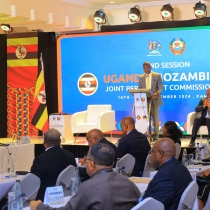
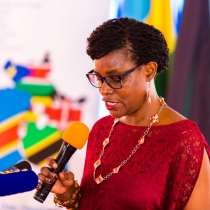
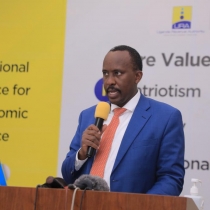
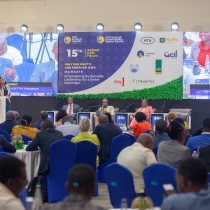
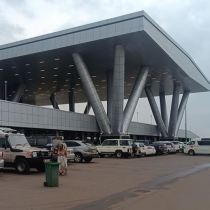
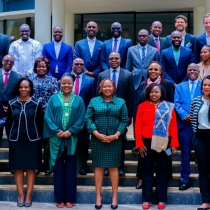
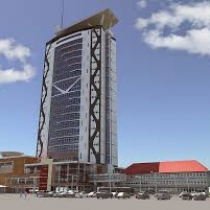

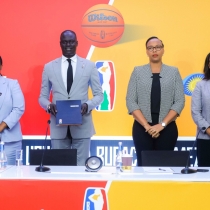




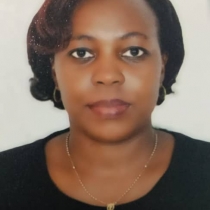

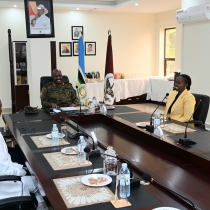







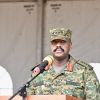







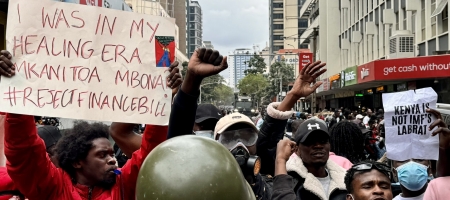




Join the conversation